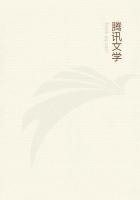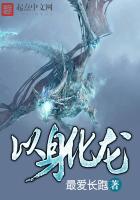Again,in Nicias'way of speaking,the term 'courageous'must be denied to animals or children,because they do not know the danger.Against this inversion of the ordinary use of language Laches reclaims,but is in some degree mollified by a compliment to his own courage.Still,he does not like to see an Athenian statesman and general descending to sophistries of this sort.Socrates resumes the argument.Courage has been defined to be intelligence or knowledge of the terrible;and courage is not all virtue,but only one of the virtues.The terrible is in the future,and therefore the knowledge of the terrible is a knowledge of the future.But there can be no knowledge of future good or evil separated from a knowledge of the good and evil of the past or present;that is to say,of all good and evil.
Courage,therefore,is the knowledge of good and evil generally.But he who has the knowledge of good and evil generally,must not only have courage,but also temperance,justice,and every other virtue.Thus,a single virtue would be the same as all virtues (compare Protagoras).And after all the two generals,and Socrates,the hero of Delium,are still in ignorance of the nature of courage.They must go to school again,boys,old men and all.
Some points of resemblance,and some points of difference,appear in the Laches when compared with the Charmides and Lysis.There is less of poetical and ****** beauty,and more of dramatic interest and power.They are richer in the externals of the scene;the Laches has more play and development of character.In the Lysis and Charmides the youths are the central figures,and frequent allusions are made to the place of meeting,which is a palaestra.Here the place of meeting,which is also a palaestra,is quite forgotten,and the boys play a subordinate part.The seance is of old and elder men,of whom Socrates is the youngest.
First is the aged Lysimachus,who may be compared with Cephalus in the Republic,and,like him,withdraws from the argument.Melesias,who is only his shadow,also subsides into silence.Both of them,by their own confession,have been ill-educated,as is further shown by the circumstance that Lysimachus,the friend of Sophroniscus,has never heard of the fame of Socrates,his son;they belong to different circles.In the Meno their want of education in all but the arts of riding and wrestling is adduced as a proof that virtue cannot be taught.The recognition of Socrates by Lysimachus is extremely graceful;and his military exploits naturally connect him with the two generals,of whom one has witnessed them.The characters of Nicias and Laches are indicated by their opinions on the exhibition of the man fighting in heavy armour.The more enlightened Nicias is quite ready to accept the new art,which Laches treats with ridicule,seeming to think that this,or any other military question,may be settled by asking,'What do the Lacedaemonians say?'The one is the thoughtful general,willing to avail himself of any discovery in the art of war (Aristoph.Aves);the other is the practical man,who relies on his own experience,and is the enemy of innovation;he can act but cannot speak,and is apt to lose his temper.It is to be noted that one of them is supposed to be a hearer of Socrates;the other is only acquainted with his actions.Laches is the admirer of the Dorian mode;and into his mouth the remark is put that there are some persons who,having never been taught,are better than those who have.Like a novice in the art of disputation,he is delighted with the hits of Socrates;and is disposed to be angry with the refinements of Nicias.
In the discussion of the main thesis of the Dialogue--'What is Courage?'he antagonism of the two characters is still more clearly brought out;and in this,as in the preliminary question,the truth is parted between them.
Gradually,and not without difficulty,Laches is made to pass on from the more popular to the more philosophical;it has never occurred to him that there was any other courage than that of the soldier;and only by an effort of the mind can he frame a general notion at all.No sooner has this general notion been formed than it evanesces before the dialectic of Socrates;and Nicias appears from the other side with the Socratic doctrine,that courage is knowledge.This is explained to mean knowledge of things terrible in the future.But Socrates denies that the knowledge of the future is separable from that of the past and present;in other words,true knowledge is not that of the soothsayer but of the philosopher.
And all knowledge will thus be equivalent to all virtue--a position which elsewhere Socrates is not unwilling to admit,but which will not assist us in distinguishing the nature of courage.In this part of the Dialogue the contrast between the mode of cross-examination which is practised by Laches and by Socrates,and also the manner in which the definition of Laches is made to approximate to that of Nicias,are worthy of attention.
Thus,with some intimation of the connexion and unity of virtue and knowledge,we arrive at no distinct result.The two aspects of courage are never harmonized.The knowledge which in the Protagoras is explained as the faculty of estimating pleasures and pains is here lost in an unmeaning and transcendental conception.Yet several true intimations of the nature of courage are allowed to appear:That courage is moral as well as physical:That true courage is inseparable from knowledge,and yet is based on a natural instinct.Laches exhibits one aspect of courage;Nicias the other.The perfect image and harmony of both is only realized in Socrates himself.
The Dialogue offers one among many examples of the ******* with which Plato treats facts.For the scene must be supposed to have occurred between B.C.424,the year of the battle of Delium,and B.C.418,the year of the battle of Mantinea,at which Laches fell.But if Socrates was more than seventy years of age at his trial in 399(see Apology),he could not have been a young man at any time after the battle of Delium.















